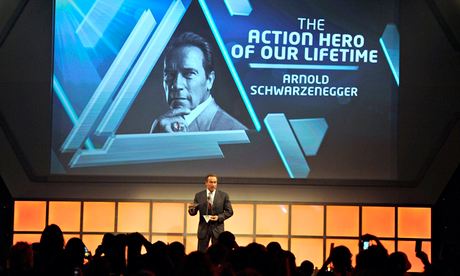
"If climate change is a total downer … it's going to be really hard to take action," said one of the scientists behind the UN climate panel's recent report on climate-driven threats to food, health and infrastructure.
One reaction is to talk up the business opportunities of doing things. Without doubt, there are many, and there is enormous scope for climate entrepreneurs. But there is a trap in hyping markets as the answer.
Many governments would like nothing more than to believe they can leave global warming to the unchallenged market. That means they wouldn't have to do anything themselves except murmur something green occasionally.
But if the market was going to solve the problem it would already be doing so, because the problem is decades old. Its price signal would already have reallocated resources to keep us living within planetary boundaries. Information would have flowed and risks been calculated in such a way that money retreated from activities damaging to a stable climate, and went into better alternatives.
Some bizarre anomalies suggest a deep-rooted inability to question the economic structures that are pushing us over the edge.
Arnold Schwarzenegger, the former "green governor" of California, is soon to star in a ground-breaking environmental series on US TV called Years of Living Dangerously. Importantly for the American market, it tackles climate change head-on.
It is made by the director James Cameron who made not only Schwarzenegger's defining film, Terminator, but also the epic Avatar, which told the story of humanity's assault on an alien race that lives at one with nature in a tropical, forest-like world.
In this new series, Schwarzenegger fronts an episode on the problem of forest fires. Other Hollywood luminaries include Harrison Ford, Jessica Alba and Matt Damon.
But, at least where Schwarzenegger is concerned, a laudable project is in danger of sending the message that we can have our planet and eat it, all due to a blind spot about financial markets. Research by Global Witness last week revealed record sums of money being invested in tropical deforestation with the largest investments coming from a US-based multibillion dollar investment company called Dimensional Fund Advisors (DFA).
It turns out, thanks to declarations made during his time as governor of California, that Schwarzenegger has a major stake in DFA which, in turn, has shares in several of the world's most notorious logging companies, including a number of companies that have been implicated in illegal activities. Overall, since 2000 the world has lost the equivalent of 50 football pitches worth of forest every minute.
DFA's sales pitch to clients is that it is a "pioneer in financial engineering", and uses the "science of capital markets". One of its directors is the Nobel prize-winning economist Eugene Fama, who was dubbed the father of the "efficient market hypothesis". Famously, he played down the risks posed by the housing market before the sub-prime mortgage crisis triggered the broader financial crash of 2007-08.
Complex algorithms have long been a part of financial trading, but they've become ever more dominant as the speed of financial transactions makes individual human scrutiny impossible. But narrowly efficient markets have proved highly inefficient at spotting and avoiding systemic risks, whether to do with the housing market or, in this case, the preservation of a biosphere fit for human civilisation. Without in-built checks and balances, seemingly clever financial engineering can do terrible damage.
Here, the immediate, obvious irony of the environmentalist profiting from deforestation deepens. Arguably Schwarzenegger is most famous for his role as the Terminator, a robo-killer who travels back from the future to assassinate humanity's last hope in a future war against machines. Now, the real-life actor is tied-up in robo-funds that really do pose a threat to our survival chances.
Trusting that some vague notion of the market will come to save us is deeply misguided. That is partly why, perversely, the very industries that pose the greatest threat in terms of climate change would never rely on it. If the UN's estimate of $30bn a year sounds a lot to help protect tropical forests, it's worth remembering that an amount 63 times greater goes in subsidy alone to the fossil fuel sector globally.
Already this year thick clouds of smoke from forest fires in Indonesia are filling the air of major cities. These add to a huge human death toll from pollution-linked respiratory problems just as they also signal how we are compromising tropical forests that are the lungs of the world. It's a problem pushed by market mechanisms.
If Arnold Schwarzenegger is set to give advice on tackling fires at home, he could set an even better example by making sure his investments don't metaphorically pour petrol on them abroad.

